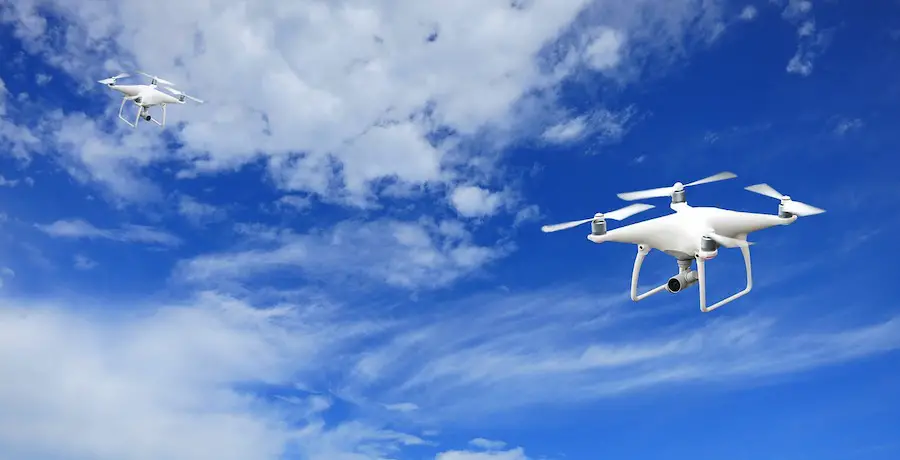Technology giants wield significant control over global security through their vast resources and influence. These companies play a crucial role in shaping cybersecurity policies and technologies, impacting individuals, businesses, and governments worldwide.
As technology continues to advance rapidly, the role of these giants in ensuring global security becomes increasingly critical. This influence raises questions about the power dynamics between tech companies and governments, as well as the ethical considerations surrounding data privacy and surveillance.
In this blog post, we will delve into the intricate relationship between technology giants and global security, exploring the implications of their dominance in this crucial domain.

Credit: techfocuspro.com
The Rise Of Technology Giants In Global Security
From Startups To Security Stalwarts
Technology giants have rapidly become key players in global security. What started as innovative startups have now grown into influential entities that shape the landscape of security on a global scale. Their cutting-edge technologies and vast resources enable them to significantly impact security measures and protocols across various industries.
Expanding Influence In Digital Realms
These technology giants are expanding their influence beyond traditional security domains into the digital realms. They are leveraging advanced algorithms, artificial intelligence, and data analytics to enhance cybersecurity, threat detection, and risk mitigation. Their involvement in global security is pivotal in safeguarding digital assets and protecting against emerging cyber threats.

Credit: cyber-180.com
Monopolizing The Market
Dominant technology giants wield immense power over global security, monopolizing the market. Their control raises concerns about data privacy and cybersecurity worldwide. The influence of these companies on security measures is profound and far-reaching.
The dominance of technology giants has raised concerns about market monopolization. These companies hold immense power and influence, shaping global security dynamics. Their control over the market has far-reaching implications that need to be addressed.
Market Dominance Concerns
The concentration of power in the hands of a few tech giants creates concerns about fair competition. Their monopolistic practices can stifle innovation and limit consumer choice. Regulators are increasingly scrutinizing their market dominance to ensure a level playing field.
The Impact On Smaller Competitors
Smaller competitors face significant challenges in competing with tech giants. Limited resources and market access hinder their growth and innovation. This imbalance can lead to decreased diversity and innovation in the technology sector.
Data Privacy Concerns
Technology giants engage in extensive data collection efforts that raise privacy concerns.
Personal information is at risk due to the massive amount of data being collected.
Data exploitation by tech giants poses serious risks to personal privacy.
Users’ information may be misused for various purposes without consent.
Impact On National Security
The increasing influence of technology giants on global security has raised concerns about the impact on national security. With their vast resources and global reach, these companies have the potential to shape the landscape of security and surveillance on a global scale.
Tech Firms And Government Surveillance
Technology firms play a pivotal role in government surveillance efforts, providing crucial tools and infrastructure for data collection and analysis. Their cooperation with government agencies has sparked debates about privacy and civil liberties, as well as the balance between security and individual freedoms.
The Dilemma Of Backdoor Access
The dilemma of backdoor access poses a significant challenge in the realm of national security. While governments argue for the necessity of such access to combat threats, tech giants express concerns about the potential misuse and vulnerabilities that backdoors may introduce into their systems.
Economic Risks And Dependencies
When it comes to technology giants, economic risks and dependencies are a critical aspect that cannot be overlooked. The reliance on these tech giants for various products and services has created vulnerabilities and dependencies that can have far-reaching consequences on the global economy.
Global Supply Chain Vulnerabilities
Global supply chains are exposed to vulnerabilities due to the interconnectivity and interdependence on technology giants. These giants often control critical components and technologies that are essential for the functioning of various industries, making the global supply chain susceptible to disruptions and manipulations.
Over-reliance On Tech Monopolies
The over-reliance on a handful of tech monopolies poses significant economic risks. The dominance of these giants in the market can lead to unfair competition, stifling innovation and limiting consumer choices. This over-reliance creates a situation where the failure or mismanagement of these companies could have severe economic repercussions globally.
Cybersecurity Implications
As technology giants exert their influence on a global scale, the implications for cybersecurity are profound. The interconnected nature of our digital world means that the actions of these companies have wide-reaching consequences, particularly in the realm of cybersecurity.
Managing The Threat Landscape
The evolving threat landscape presents a formidable challenge for technology giants. Implementing robust security measures is essential to safeguard against the myriad of threats that lurk in the digital sphere. This necessitates a proactive approach to identifying and neutralizing potential vulnerabilities.
Challenges In Protecting Against Cyber Attacks
Defending against sophisticated cyber attacks is a complex endeavor. Technology giants face the arduous task of fortifying their systems against relentless attempts to breach their defenses. Balancing accessibility with security is a delicate tightrope walk, requiring meticulous attention to detail and constant adaptation to emerging threats.
Antitrust And Regulatory Measures
As technology giants continue to dominate the global security landscape, concerns about their immense power have prompted discussions around antitrust and regulatory measures. Governments and regulatory bodies are exploring strategies to curb the influence of these tech titans and ensure a more competitive and fair marketplace.
Government Intervention Strategies
Amid growing apprehensions about the unchecked power of technology giants, governments are devising intervention strategies to address antitrust issues and regulate these influential entities. These measures aim to promote healthy competition, protect consumer interests, and mitigate the potential risks associated with monopolistic control over sensitive data and security infrastructure.
The Debate Over Effective Regulation
The debate over effective regulation of technology giants revolves around finding a balance between fostering innovation and preventing the consolidation of power that could stifle competition. Regulatory authorities are deliberating on the most impactful measures to ensure that these companies operate within boundaries that safeguard the interests of both consumers and smaller market players.
The Future Of Global Security With Tech Giants
Technology giants are increasingly shaping global security with their influence and resources. As these companies expand their reach, the future of global security is becoming intertwined with the strategies and technologies developed by these tech giants. This shift raises important questions about the balance of power and the ethical considerations surrounding the role of private corporations in global security.
The future of global security is closely intertwined with the role of technology giants in shaping the landscape. Innovations in Security Technology continue to redefine how we safeguard our digital and physical realms. From AI-driven threat detection to blockchain-powered authentication methods, advancements in security tech are revolutionizing the protection of critical assets.
Innovations In Security Technology
These innovations enable real-time monitoring, proactive threat identification, and rapid response mechanisms. Biometric authentication and encryption technologies are enhancing data protection across various sectors. The rise of IoT security solutions has introduced a new dimension to safeguarding interconnected devices and networks.
The Balance Between Power And Responsibility
As tech giants wield immense influence in the security domain, the need for a delicate balance between power and responsibility becomes paramount. Transparency in data handling practices and collaboration with regulatory bodies are crucial to ensure ethical use of security technologies. Ethical considerations in AI development and responsible data governance play a pivotal role in upholding global security standards. In conclusion, the future of global security with tech giants at the forefront presents both challenges and opportunities. Embracing innovation while upholding ethical principles is essential for a secure and resilient digital ecosystem.

Credit: medium.com
Conclusion
As technology advances, the global security landscape continues to evolve. In this regard, technology giants have taken the lead in shaping the world’s security. From providing advanced cybersecurity solutions to governments and businesses, to developing cutting-edge surveillance technology, these companies have become key players in the global security arena.
However, with their immense power and influence, there is a need for accountability and transparency to ensure that their actions align with the public interest. As we move into the future, it is essential to strike a balance between technological innovation and ethical considerations to safeguard our collective security.








